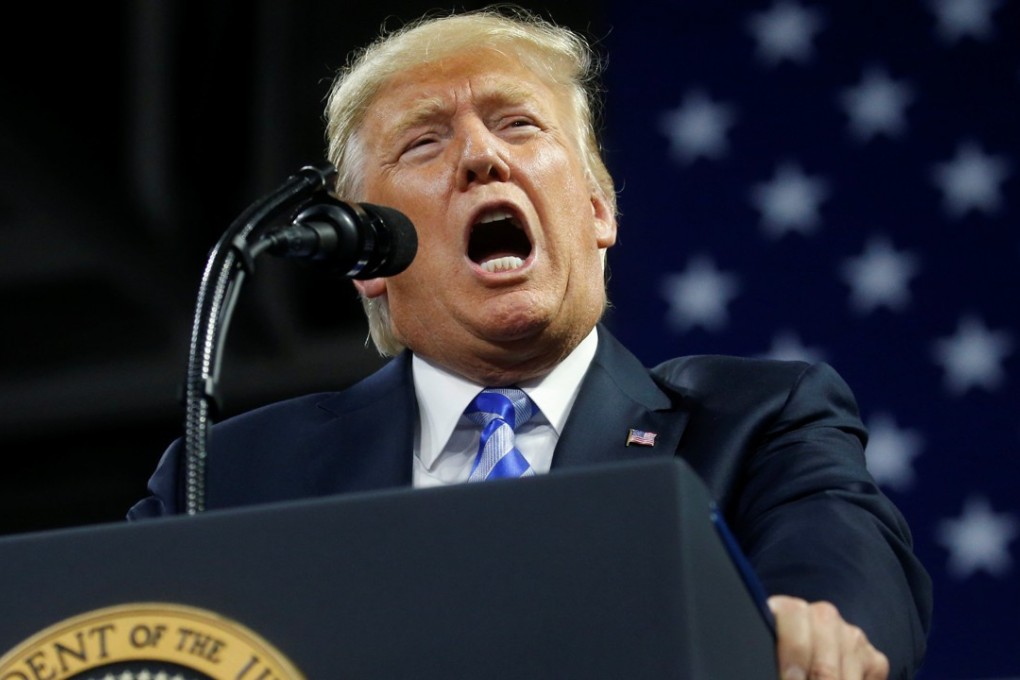Fed chief puts Trump in his place as world braces for slowdown
The US president may be unhappy with rising interest rates, but he cannot influence the policy of his own central bank and a soft landing is hoped for

In a normal world, US Federal Reserve chairman Jay Powell would only need to deliver an upbeat assessment of the American economy while cautioning markets to prepare for a gradual rise in interest rates. But, with an erratic US president among his critics, Powell found himself having to defend Fed policy in his first speech to the annual gathering of American central bankers at Jackson Hole since taking up the top post. This is just as well. With the Hong Kong dollar pegged to the greenback, the city is better off with a robustly independent Fed and its consistent but cautious monetary policy than an opportunistic Donald Trump driven by shifting political and even personal considerations.
A week ago, Trump said he was “not thrilled” by the Fed’s monetary tightening and complained he should have been “given some help by the Fed” instead of having to face two rate rises since Powell became chairman earlier this year. In his latest speech, Powell defended the need to raise rates, having declared that key indicators such as household and business spending, and employment and inflation rates all pointed to robust and sustainable growth without overheating. He reaffirmed a policy of gradual tightening.
His appears to be the consensus view among fellow central bankers. So the blatant attempt by Trump to influence the Fed may be discarded, especially at a time when his political capital is rapidly depleting, thanks to an ongoing scandal over hush money paid to a porn star and a former Playboy playmate. The Fed is not the only primary governing institution declaring independence from political interference. Even Trump’s one-time ally, Attorney General Jeff Sessions, found it necessary to reassure the American public that the US Justice Department would not be “improperly influenced”.
Back in Hong Kong, Powell’s message should rightly carry much more weight than Trump’s. From the Hong Kong Monetary Authority and some banks to major developers and property agencies, key financial players are preparing for a market slowdown. The HKMA has recently defended the Hong Kong dollar. With the withdrawal of liquidity, mortgage rates are under pressure to rise.
Meanwhile, investment bank CLSA, as well as banking giants Citibank and UBS, have warned of a sharp property downturn ahead, thanks to a combination of rising interest rates, a slowing mainland economy and a depreciating yuan. How ironic that Trump, too, has been complaining about the drop in value of the yuan since the start of the Sino-US trade war while accusing Beijing of currency manipulation. China is actually more worried about capital outflow than using a low yuan to boost exports. With Hong Kong’s housing prices having risen for 27 straight months, a correction is overdue and healthy. Hopefully, it will be a soft landing rather than a crash.
